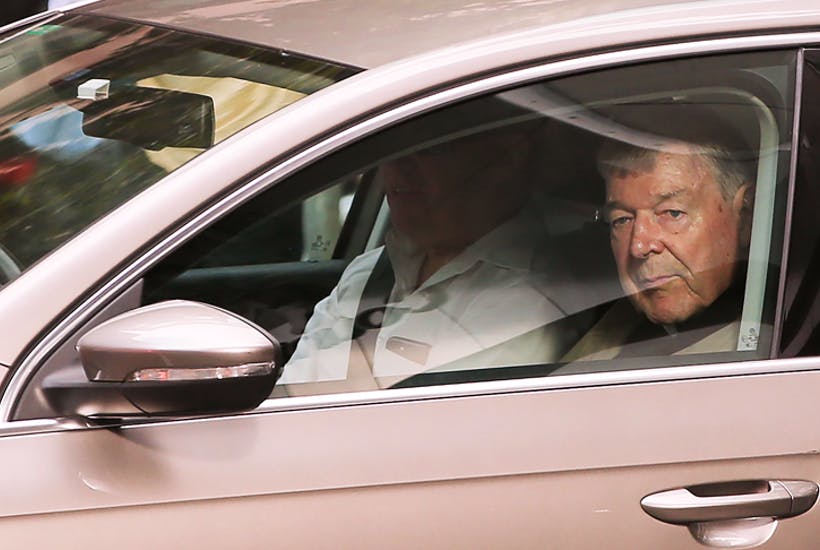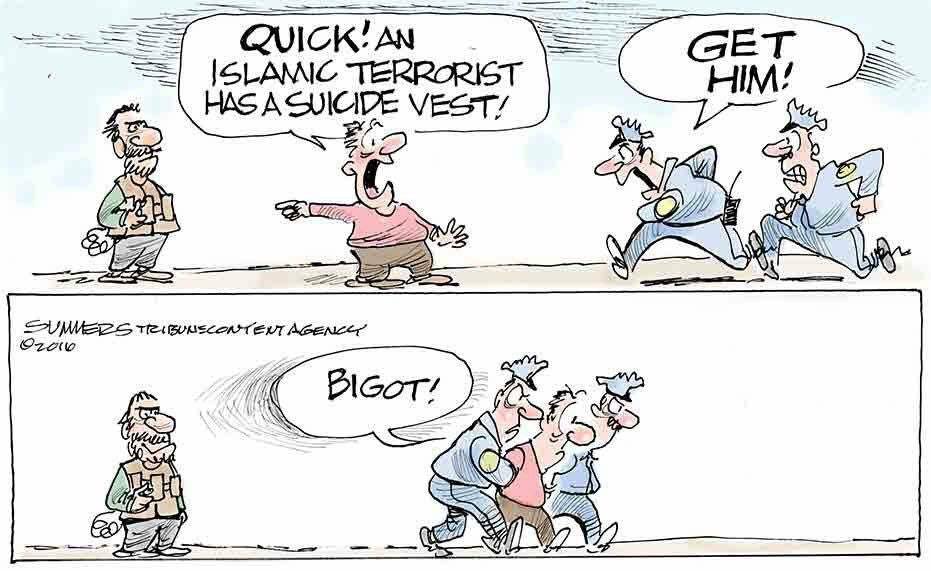Do Christians have a duty to warn others of sins and their consequences?
Ezekiel 33:8.9 When I tell wicked people they will die because of their sins, you must warn them to turn from their sinful ways. If you refuse to warn them, you will be held accountable for their death. If you do warn them, and they keep sinning, they will die because of their sins, but you will be innocent of their death.
Leviticus 19:17 Do not hate your neighbours, but rebuke them frankly, so you do not share in their guilt.
Or in Glen Campbells’ paraphrase:
If you see your brother standing by the road
With a heavy load from the seeds he’s sowed
And if you see your sister falling by the way
Just stop and say, you’re going the wrong way
Well, that’s pretty clear. Christians have a duty to warn friends, neighbours, family, if they are on the wrong track.
On the wrong track means living in such a way that they will cause serious harm to themselves or to people near them. And the most serious harm is to live in a way that alienates them and those around them from the love of God, to act in ways that shut God’s grace out of one’s life. That is, to live in mortal sin, which denies a person the ability to know the depth of God’s love and purpose for his or her life here and now, and without repentance, shuts them away from experiencing God’s love forever, which is hell.
But how does this work in practice? Are Christians meant to go around telling all and sundry: “Stop doing that. It will ruin your life and you will go to hell?”
Probably not.
It is not any particular sin that alienates us from God, or even a besetting sin – a lingering temptation we cannot seem to shake, to the point where we feel it to be part of who we are – so much as Sin itself. Repenting of a particular sin does not make us right with God. An axe murderer who repents of his axe murders and decides to commit them no more is not thereby set right with God and destined for heaven.
What we aim to do is what Jesus aimed to do. To help people recognise that without God their lives are empty, and become emptier to the point that they narrow down into loneliness and darkness and resentment, till that resentment becomes spite, and gnaws away at us forever and there is no hope of redemption. And to know that by choosing to repent of sin and live for Jesus, they can replace that anguished darkness with light and hope and eternal life.
That does not mean they (and we) may not still sin, and make mistakes and bad choices, but that they are saved; they are on the road that leads to life, and the more they walk on that road, and the more they try to follow Jesus’ example, the more peaceful, joyful and purposeful their lives will become.
So what does this Christian duty of warning, leading, advising mean in practical terms?
Firstly, it is a very serious thing to pretend something God has said is a sin is not a sin. People cannot repent of a sin they do not believe is a sin. If we tell people it is fine for them to continue to behave in a way God has said is not OK, we will most certainly be held accountable for the harm that comes to them.
This is a bit like a parent who insists, against a toddler’s screams of outrage, that the toddler must not stick forks into electric sockets. A parent who did not do his or her best to stop this behaviour, especially if it was repeated, would be considered at fault if the child came to serious harm.
Secondly, any such warning must, like that of a parent for a child, spring from genuine love and compassion. It has been well said that people will not care what you say until they see that you care. If you do not have a history of practical care and friendship for a person, then warning them that a particular action will cause them harm and separate them from the love of God, is not likely to be heard as anything other than self-righteousness and judgmentalism.
However, Matthew 7:1 “Judge not, lest you be judged,” is often taken out of context. It most certainly does not mean that we cannot judge evil actions. We can and must, and so must any just and civilised society. Rape is not OK, theft is not OK, murder is not OK.
The judgement we are not to make is that others are less valuable to God than we are. No matter what they have done; murderer, child molester, bully, wife beater, etc, etc, – every single person who has ever lived is loved by God so dearly that He sent His only Son so that person could have life eternal, that is, be with Jesus as a beloved friend forever.
God does not write people off, so neither must we. We must endeavour to see and treat every person we encounter in the knowledge that that person is valued, treasured by God beyond any human measure. We must not use, abuse or dismiss others, we must not judge or belittle them.
This means, if anything, that our duty to warn is even greater, not less. But how to do this? Our example must be Jesus.
We certainly need to heed Jesus’ warning in Matthew 7:4,5 “How can you say to your brother, ‘Let me take the speck out of your eye,’ when all the time there is a plank in your own eye? You hypocrite, first take the plank out of your own eye, and then you will see clearly to remove the speck from your brother’s eye.”
Examine your own life first; the way you treat the members of your family, your language – even when alone, what you look at and let your eyes linger on, the little shortcuts you take in business, the shading of the truth, the failure to take responsibility, the over-eating, the laziness. Be a harsher critic of your own decisions and choices than you are of anyone else’s. The first soul you are responsible to God for is your own.
But don’t wait till you are perfect! You never will be, not in this life, anyway. And like a loving parent, the fact that you fail sometimes should not stop you trying to help and protect others.
Two examples from the life of Jesus:
Luke 19:1-10, the story of Zacchaeus, the tax collector.
Tax collectors were despised not just because they were civil servants to the hated Roman occupiers, but because they abused and stole from the poorest and most vulnerable members of society, and because they frequently used violence to extort money where it was not owed. They were scum. Or that is how most of Jewish society saw them. Yet Jesus invites himself to dinner at the home of a tax collector.
Complaints ensued. Understandable complaints! Jesus was someone who had consistently spoken for the poor, who was one of the poor and lived among them. He had also spoken unmistakeably about the need to live justly before God. Zacchaeus knew this. Jesus showed him by his actions that he was loved by God. It was up to Zacchaeus to accept the offer of fellowship, not just a once-off over dinner, but to be Jesus’ friend for all eternity. Or to reject it, knowing that if accepted, it meant he needed to make a break with his past; not just to cease acting in the way he had, but to make what amends he could, and to try to live a life of integrity and generosity from then on. Salvation came to Zacchaeus not just when Jesus spoke to him, but when Zacchaeus responded with repentance.
Love, not abuse or lecturing or rejection, led to Zaccaheus’s seeing that he was loved by God, and could have a life in which he was loved and valued by others. Jesus did not accept or slide over his sins, which were many and grievous, but the most important thing was to let him know that in spite of everything, he was valued, and could have a life richer and deeper than the materially rich but horribly empty life he had led to that point.
John 8: 1-11, the story of the woman caught in adultery.
I was astonished to read on a website recently (I cannot now find the link, sadly) that Jesus was a leader in recognising and blessing the sex industry. The author’s argument was that Jesus had not condemned the woman, who was following her chosen career (according the article’s author), but rather, had condemned those who stood against her. Therefore Jesus recognised and accepted the dignity of sex work. But this is not how John describes what happened. Jesus does indeed ask the woman “Has no one condemned you?” and when she answers “No, lord,” He replies “Then neither do I condemn you.” But this is not an acceptance of her actions.
The crowd was about to stone her; a horrifying punishment that is still used in some Middle-eastern countries. What is meant is “Has no one thrown a stone? Has no one condemned you to death?” They had not, and neither would Jesus. But not condemning someone to death is not saying their actions were acceptable. Jesus makes it clear that she is acceptable, valued, and worthy of love, but that her actions are not. “Go then. And do not sin again.” According to some traditions, this was Mary of Magdala, who become one of Jesus’ followers, and was the first to bring the good news of His resurrection to His disciples.
It was the combination of unfailing genuine love and service to the person, unyielding, relentless, unconditional love and acceptance of them as a person, along with unyielding rejection of behaviour harmful to them and others, that brought both Zacchaeus and Mary Magdalene to repentance, into fellowship with Jesus, and into eternal life. This is the example we are to follow.
A last word. There is this: Proverbs 9:8 “Do not rebuke mockers or they will hate you; rebuke the wise and they will love you.” Mockers are not people who mock you or your ideas, but those who mock the need for God, or faith in God. As I noted above, it is not repentance from any particular sin which saves us, but turning to Christ. It is in a relationship with Jesus that we are born again and find eternal life. Without that, turning from any individual sin is meaningless.
There is no point in suggesting to people who are not Christians that a particular behaviour is setting them on the wrong road or alienating them from God. Not only is there no point, but such suggestions are likely to reinforce the view that Christians are judgmental and uninterested in them as persons. This is what Paul meant when he wrote in 1 Corinthians 5:12 “I have no business judging those who are outside. It is those who are inside we are to judge.”
We are called to love others because God loves them. Even when they are rude, spiteful, dishonest, even when they reject us and use us and say unkind things about us, God loves them and gave His Son for them. We are called to do the same. People are not objects, or even projects. They are to be treasured for themselves, because God treasures them.
Of course we will sometimes get it wrong. We will lose our tempers, be selfish, harsh and thoughtless. That matters, but it is not the end of the story. Because just as all those around us are loved, so are we, and God our Father is relentlessly, unyieldingly forgiving and welcoming.
We are loved, and so we are called to love.








